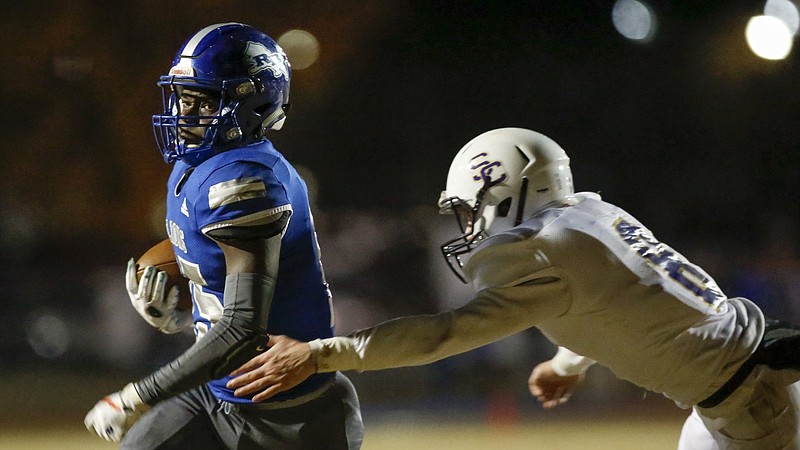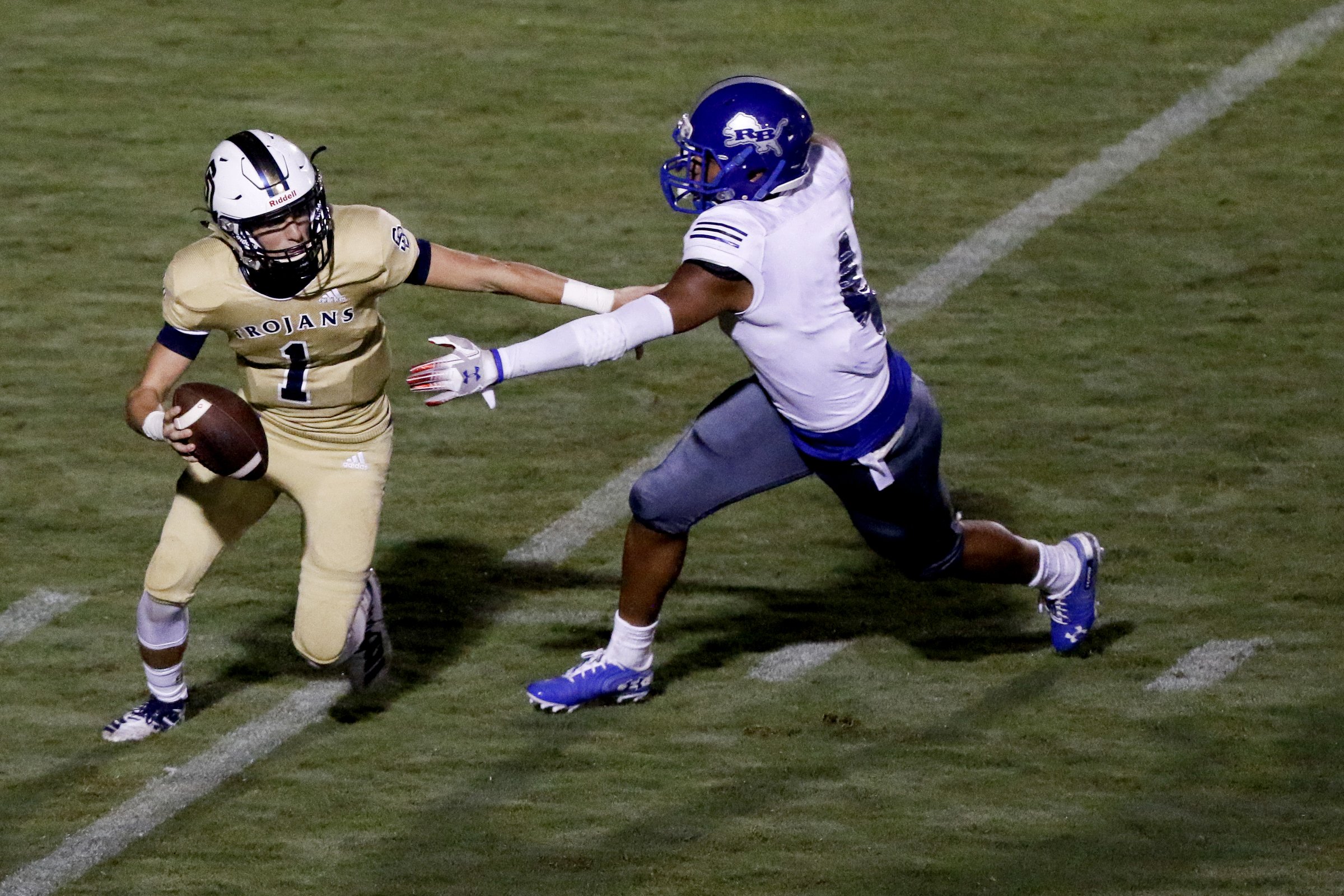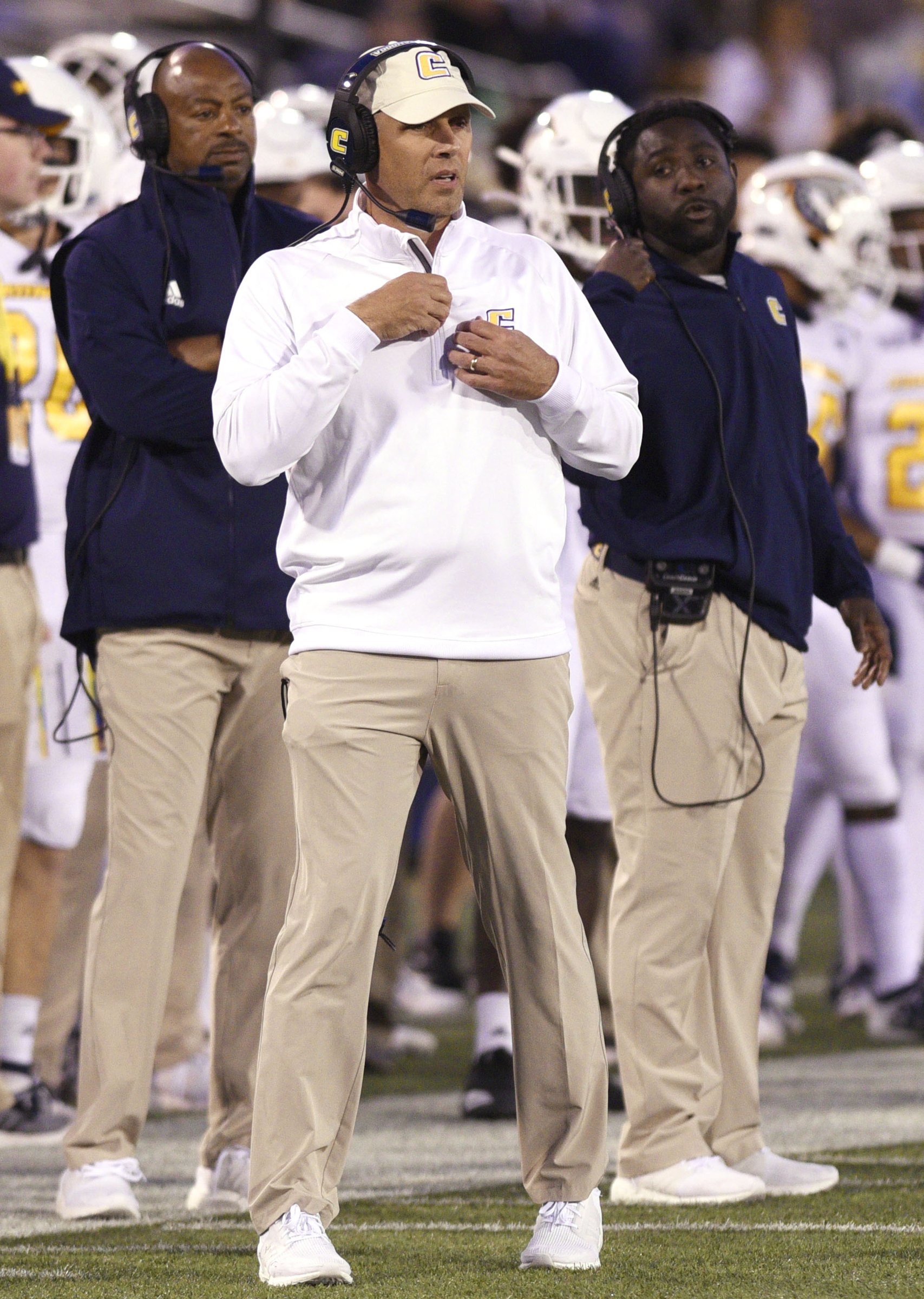EDITOR'S NOTE: This is the second in a four-part series on the effects of the COVID-19 pandemic on college sports recruiting.
No one in the college football world appears to have any idea what will happen next as the new coronavirus continues to spread throughout the country.
Like other sports affected by the pandemic, it's no longer business as usual for college football coaches, players and recruits. Spring practices were supposed to be going on. Official campus visits were supposed to be taking place.
Obviously that's not happening.
While some programs had started spring practices, many had not, and they all were eventually sidelined in the days after the World Health Organization declared the outbreak a pandemic and the NBA became the first big domino to fall in the athletic world.
Prospective student-athletes should be taking campus trips in hopes of making plans for their college futures, but they can't with the NCAA having declared a dead period for recruiting that prohibits official and unofficial visits. Even current college athletes who have entered their names into the NCAA's transfer portal can't make visits, with their lives, not just their athletic careers, on hold until things settle down - if they do in time to leave the 2020-21 school year and sports calendar unaffected.
What has started to transpire is an onslaught of scholarship offers from college coaches to high school players. Red Bank football coach Chris Brown noted he has three players - athlete Lumiere Strickland, defensive lineman Cam Bell and offensive lineman B.J. Ragland - who have received multiple offers this week alone, with texts and calls still allowed during the dead period.
"Right now the college coaches don't have anything else to do except watch more film and review guys closer," Brown said. "They're not waiting; they're pulling the trigger on kids that they think can play for them, so we're seeing more offers coming in a short span than we normally would this time of year.
"Fortunately for us, we've had a good run of athletes like Calvin Jackson and Lucas Brown who have gotten attention from colleges, which makes those coaches more likely to look at our players."
University of Tennessee at Chattanooga coach Rusty Wright should have been close to the midpoint of his second set of spring practices since being hired in December 2018. With the Mocs typically practicing in the morning, Wright and his staff would have had ample time afterward to head back to their offices and watch video of recruits, make contact with intriguing players and work on getting them on campus for visits.
Instead, coaches everywhere have been relegated to limited avenues of communication. UTC staff members have worked to be creative, using their Twitter feeds to show off the campus and the city.
It's been just as confusing for athletes. McMinn County offensive lineman Bryce Goodner has playing offers from Ivy League schools Dartmouth, Harvard and Yale as well as Rice, Toledo and UTC. In addition to heading north to visit the Ivy League schools, he planned to attend prospect camps at Georgia, Tennessee and Vanderbilt this summer, but the 6-foot-3, 300-pounder's agenda is murky right now.
"It's kind of halted recruiting for a little bit, but then I think it's going to start picking up again here soon because all these colleges are trying to get their players situated at home," Goodner said Tuesday. "I don't think this quarantine is going to be over any time soon, so I think that they (coaches) may start recruiting from home a little bit heavier."
The NCAA's dead period will last through at least April 15, so there isn't much else coaches can do. The evaluation period for Divisions I and II, when coaches can visit recruits on their campuses or watch them compete in person, is scheduled to start as that dead period ends. That all could change of course.
What would truly alter recruiting would be the pandemic's effects lasting into the summer, when college programs host prospect camps. Last season, Wright signed multiple players who attended his camps.
In the absence of those opportunities, coaches might be forced to lean more heavily on something they already do: Combining new school methods of evaluation, such as watching game video and highlights through digital services such as Hudl, with more old school ways, such as attending high school games and evaluating players in person.
If rules allow it, satellite camps - which feature a ton of prospects at a neutral location being evaluated by college coaches who work as guests instructors - could become a big topic of interest, because they could become more important this offseason than in any other.
Whatever the obstacles, though, rosters still have to be shaped - and coaches will have to find ways to shape them.
"Hopefully, this thing will calm down a little bit," Wright said. "We'll have an opportunity to get back to what we consider normal."
Contact Gene Henley at ghenley@timesfreepress.com. Follow him on Twitter @genehenley3 or at Facebook.com/VolsUpdate.


